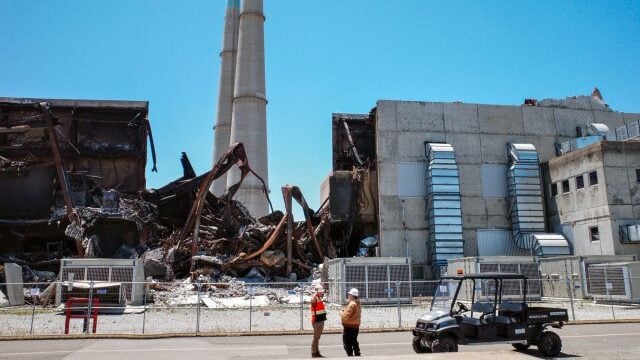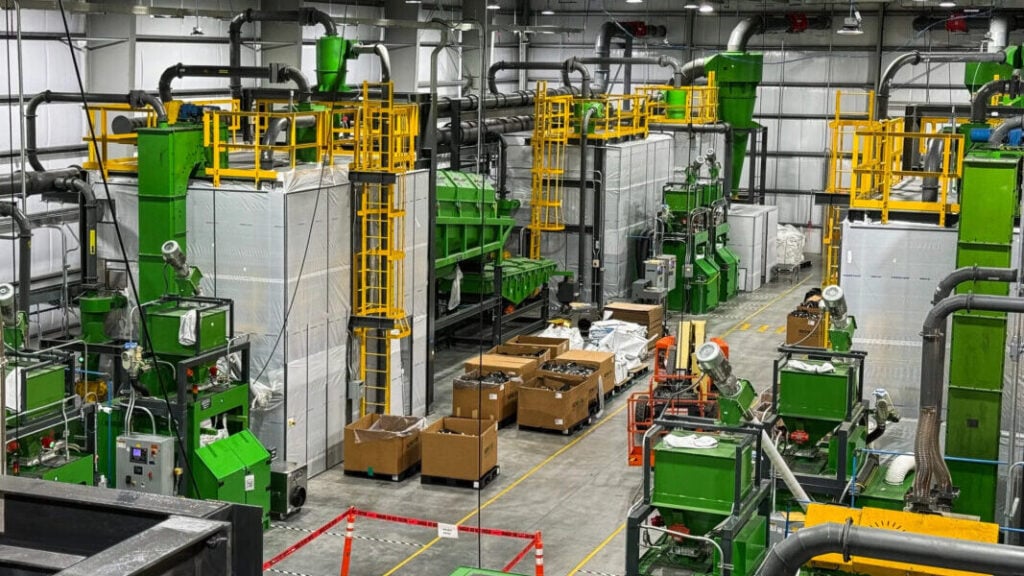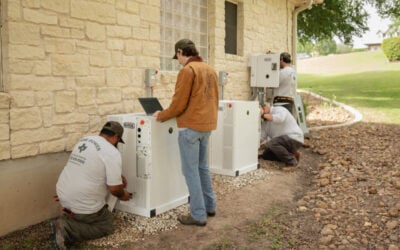
American Battery Technology Company (ABTC) is being contracted to recycle batteries from the Moss Landing Energy Storage Facility in Monterey County, California, US.
Critical minerals resources and lithium-ion battery recycling company ABTC is being contracted to handle and process up to approximately 100,000 lithium-ion (Li-ion) damaged battery modules from the 300MW battery energy storage system (BESS), overseen by the US Environmental Protection Agency (EPA), which caught fire in January.
In February, Moss Landing owner, utility and power generation firm Vistra, wrote off the value of the BESS for US$400 million.
In September, the EPA started overseeing the removal of Li-ion batteries at the Moss Landing facility.
Try Premium for just $1
- Full premium access for the first month at only $1
- Converts to an annual rate after 30 days unless cancelled
- Cancel anytime during the trial period
Premium Benefits
- Expert industry analysis and interviews
- Digital access to PV Tech Power journal
- Exclusive event discounts
Or get the full Premium subscription right away
Or continue reading this article for free
The agency claims it is the largest Li-ion battery cleanup in its history, and the process involves crews entering the building to remove and discharge battery modules individually.
Materials suitable for recycling will be sent to EPA-approved recycling facilities, such as the ABTC facility in McCarran, Nevada.
ABTC says it underwent an “arduous audit and review process” before receiving formal approval from the EPA for its battery recycling facility in Nevada to receive waste material under the Comprehensive Environmental Response, Compensation, and Liability Act (CERCLA).
The condition of the damaged batteries ranges from intact to severely compromised, with some needing urgent processing to meet safety standards.
ABTC estimates that processing all battery materials from the site could yield recycled products worth about US$30 million.
The company further stated that its internally developed recycling technologies can extract valuable critical materials such as lithium, cobalt, nickel, aluminum, steel, and copper from damaged batteries.
This process helps prevent these resources from ending up in landfills and supports the development of a closed-loop critical mineral manufacturing supply chain in the US.
ABTC was founded in 2011, under the name American Battery Metals Corporation.
In 2021, the company secured financing to build its 20,000 metric tonne-per-year Li-ion battery recycling pilot facility. The following year, it received a US$57 million grant from the US Department of Energy (DOE) to further develop the facility.
The industry continues to feel the impact of the Moss Landing fire, leading to more stringent regulations on developing BESS projects in California.
Incidents such as Moss Landing can contribute to more negative public opinions about BESS projects. During community meetings, fire safety concerns are frequently used as reasons to oppose the technology.
In an interview published this week with Energy-Storage.news Premium, Joe DeBellis, Global Head of Clean Energy at fire detection and suppression system manufacturer Firetrace International, said:
“The responsibility for (Firetrace and the BESS industry) is to educate the community, educate the public, on technologies, different safety measures that can be done. I think that’s very important as technologies continue to evolve.”
He continued, “It’s important to ask, ‘How do we get out ahead of some of these hurdles and navigate rough waters with some of these projects going up?’”
Redwood Materials begins Li-ion battery recycling in South Carolina

Also from the battery recycling world, battery recycling and materials company Redwood Materials has begun recovering critical minerals at its 600-acre Berkeley County, South Carolina campus.
The company has been operating a Nevada campus, claiming that approximately 90% of all Li-ion batteries processed in North America come through its facilities.
Adding the South Carolina campus will increase annual materials production by an additional 20,000 metric tonnes.
Redwood also claims it is on par with the largest US source of nickel and stands as the only domestic source of cobalt at scale, additionally, representing one of “the only new domestic sources of lithium and copper to come online in decades.”
The company highlighted the expansion of AI data centres as a crucial factor in energy storage development, noting that its expertise in deep materials and manufacturing will support scaling solutions to decrease dependence on imported batteries.
Notably, Redwood says that by providing domestic access to critical materials, it is “ensuring the US maintains the resources needed for military readiness, technological leadership, and energy resilience here at home.”
Over the next 10 years, the company anticipates it will create over 1,500 jobs in South Carolina and has noted the state’s history of textile, automotive, and aerospace manufacturing.
The Series E funding round was led by investor Eclipse, with participation from new strategic investors, including NVentures, the venture capital arm of Nvidia, which is known for its Graphics Processing Unit (GPU) products.
The company expanded into deploying ‘second-life’ BESS projects this year with a 63MWh microgrid powering two data centres. Redwood was founded by its CEO, former Tesla CTO JB Straubel.
This article has been updated since its publication to accurately reflect ABTC’s relationship with the EPA.





